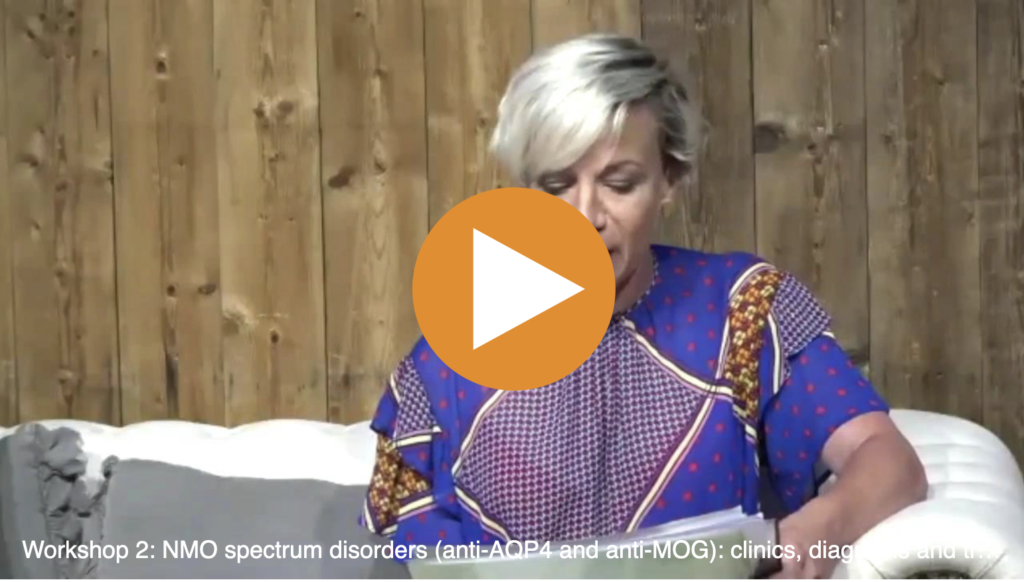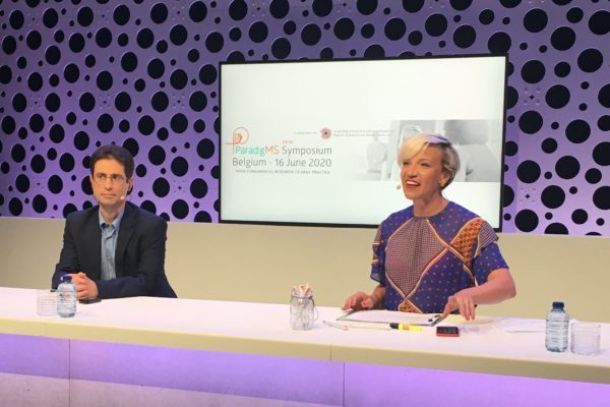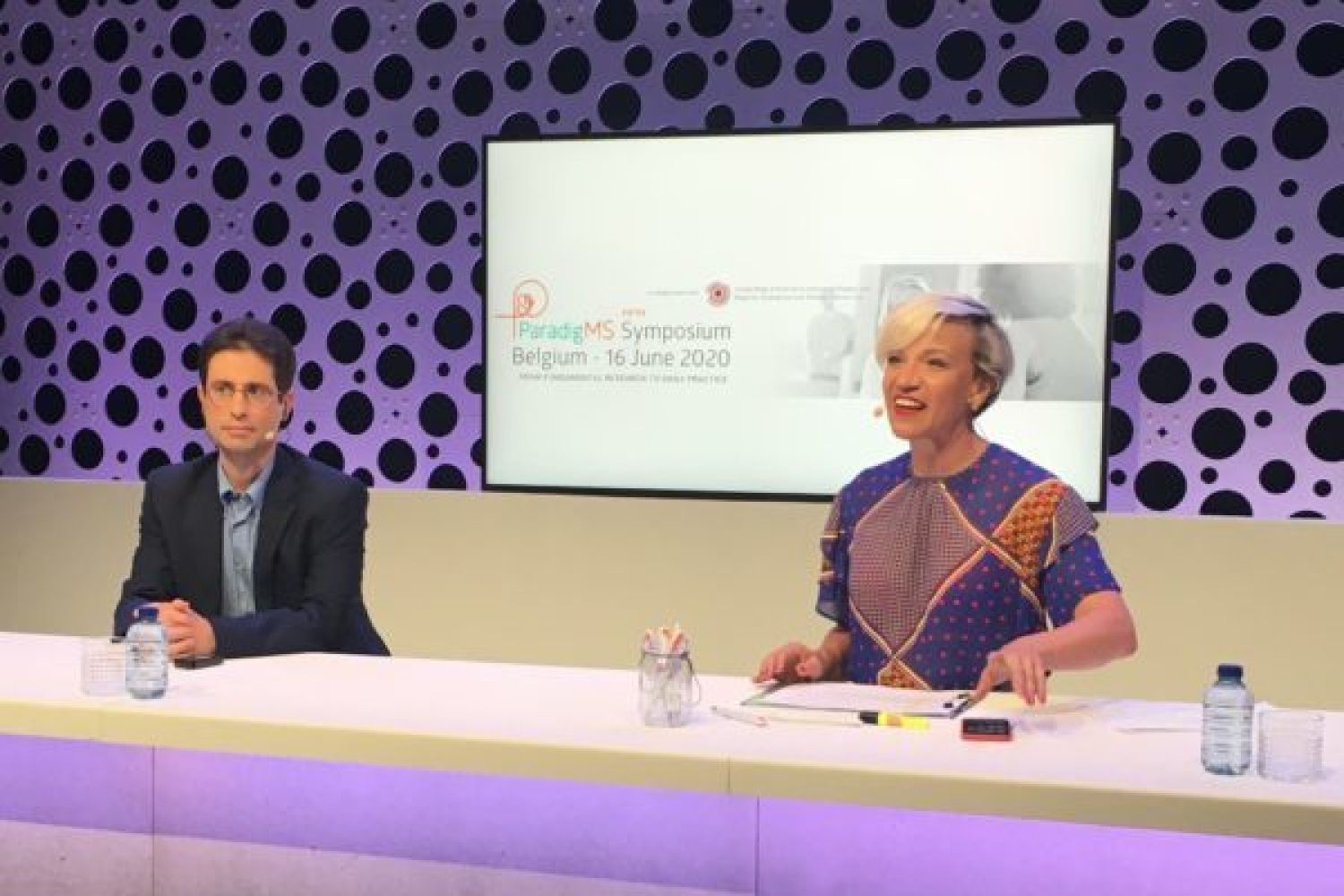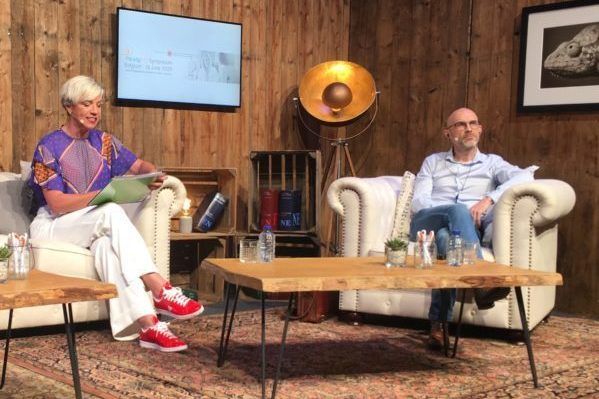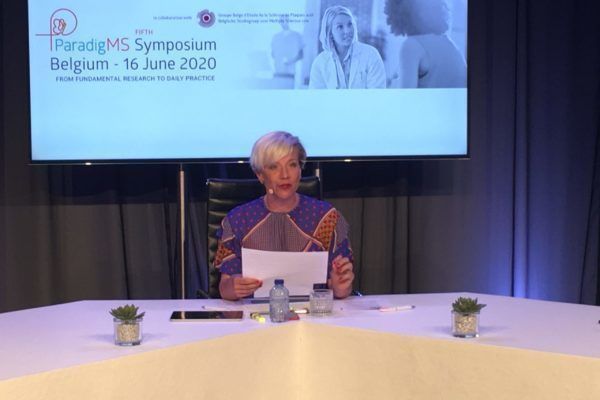NMO spectrum disorders (anti-AQP4 and anti-MOG): clinics, diagnosis and treatment options
16th of June 2020, Fifth ParadigMS Symposium. The ParadigMS Foundation and the Belgian Study Group for Multiple Sclerosis (BSGMS) organised for the first time an interactive and fully digital learning experience. Here you can review the full webinar on NMO spectrum disorders.
Abstracts :
NIKOLAOS GRIGORIADIS
Diagnostic errors may still common in Multiple Sclerosis (MS). In a number of cases where T2 lesions are identified in MRI may be considered as MS lesions resulting in inappropriate, sometimes harmful therapeutic interventions for the patient. Mono- or multi-focal symptoms consistent with inflammatory demyelinating disease, are subject to differential diagnosis. Neuromyelitis optica spectrum disorders (NMOSD) are autoantibody mediated chronic inflammatory diseases. Serum antibodies (Abs) against the aquaporin-4 water channel lead to recurrent attacks of optic neuritis, myelitis and/or brainstem syndromes. In addition, in some patients with symptoms of NMOSD, Abs against myelin-oligodendrocyte-glycoprotein (MOG) though not AQP4 are detectable. These clinical syndromes are now frequently referred to as “MOG-encephalomyelitis” (MOG-EM). The two groups of disorders may have similar symptoms though distinct clinical courses or lesion distribution throughout central nervous system (CNS) as indicated by the MRI findings. A central component of diagnostics in NMOSD and MOG-EM is the detection of the correspondent serum Abs. Differential diagnosis from other conditions with similar symptoms such as sarcoidosis or MS and other CNS disorders should be performed on the basis of relevant laboratory test. In NMOSD as well as in MOG-EM, acute attacks are usually treated with 1,000 up to 2000 (in some cases) mg intravenous methylprednisolone (IVMP) for 3–5 days with complete or almost complete recovery in 50% and 17-35% of IVMP treated MOG-EM and NMOSD attacks, respectively. In case of poor response, treatment escalation with plasma exchange (PLEX) is indicated. Long term therapy includes immunosuppression to reduce disease activity and to avoid further attacks. However, in the absence of placebo controlled trials, treatment choice is based on case reports, observational studies etc. Thus, Azathaioprine, Rituximab, Mycophenolate Mofetil, low dose Prednisone/Prednisolone may be among the currently used therapeutic options. On the contrary, Treatment with medications indicated for MS such as interferon-beta, glatiramer acetate, fingolimod, alemtuzumab, natalizumab, and dimethyl fumarate is known to have no effects in NMOSD / MOG-EM or may even be proven harmful. Evidently, it is of importance to establish the right diagnosis before any decision making for treatment.
VINCENT VAN PESCH
The diagnostic criteria of Neuromyelitis Optica Spectrum Disorders (NMOSD) have considerably evolved during the past 20 years, allowing for more precise and earlier diagnosis. Along with increasing knowledge regarding the pathology of this broadning disease entity, there have been significant advances in therapeutic strategies. This workshop will review
current diagnostic criteria of NMOSD, highlight key clinical and radiological features distinguishing MS from anti-aquaporin-4 and anti-MOG-mediated disease and discuss NMOSD diagnostic pitfalls. An update on existing and future treatments as well as treatment algorithms will be provided.
The workshop will be illustrated by clinical cases.
